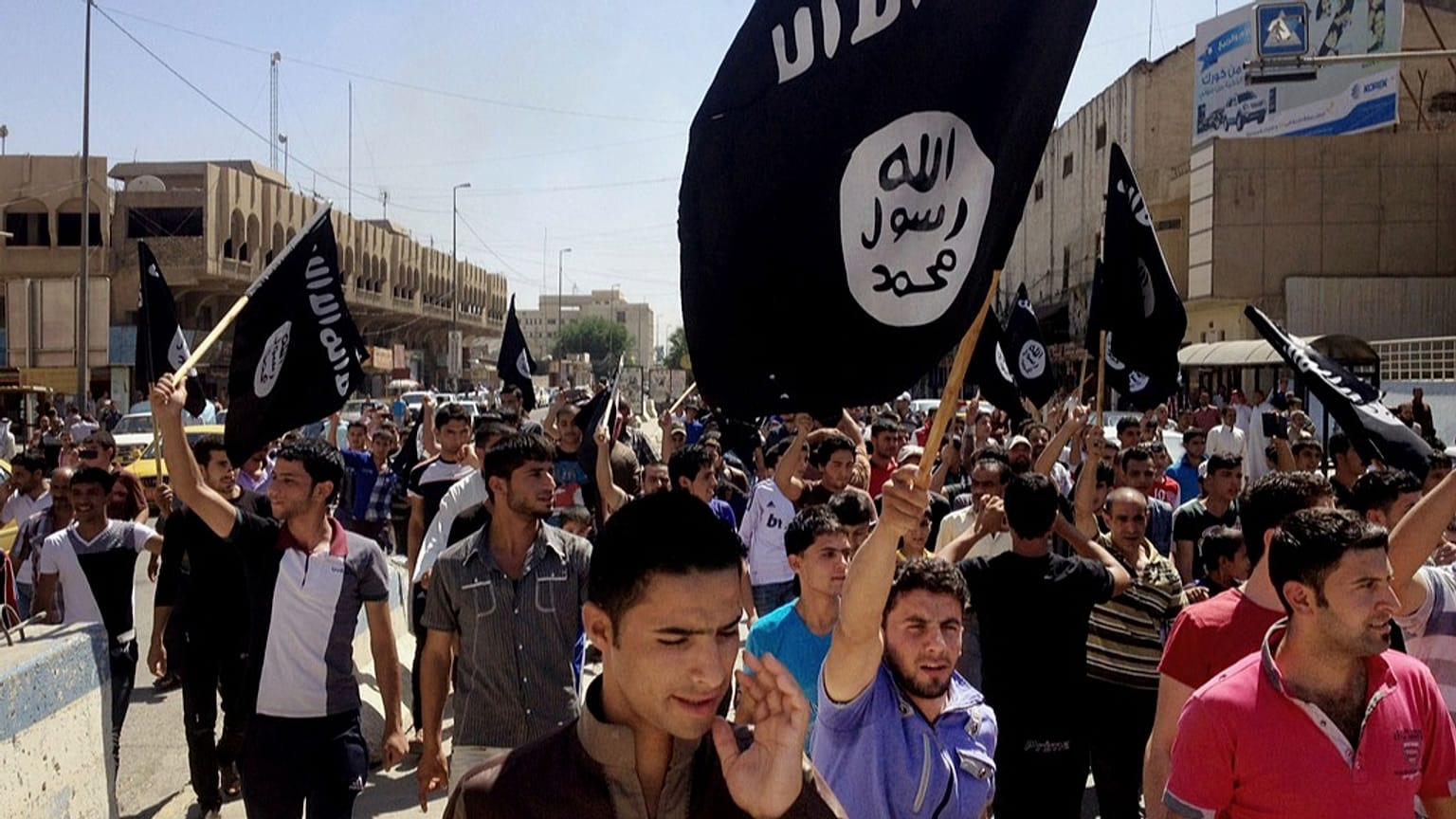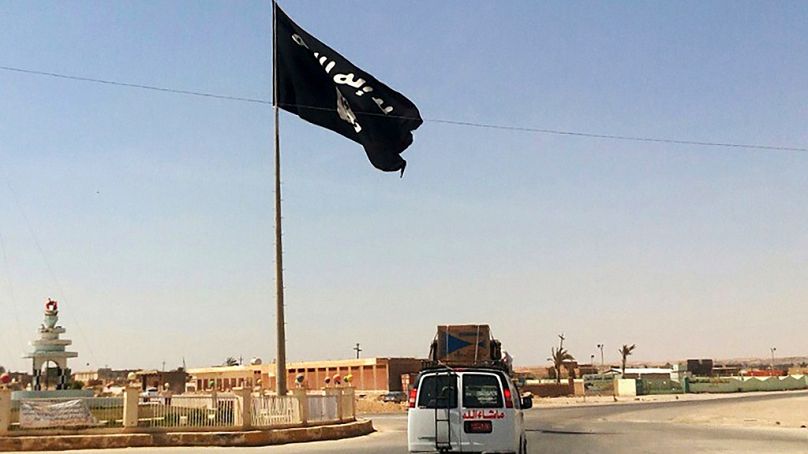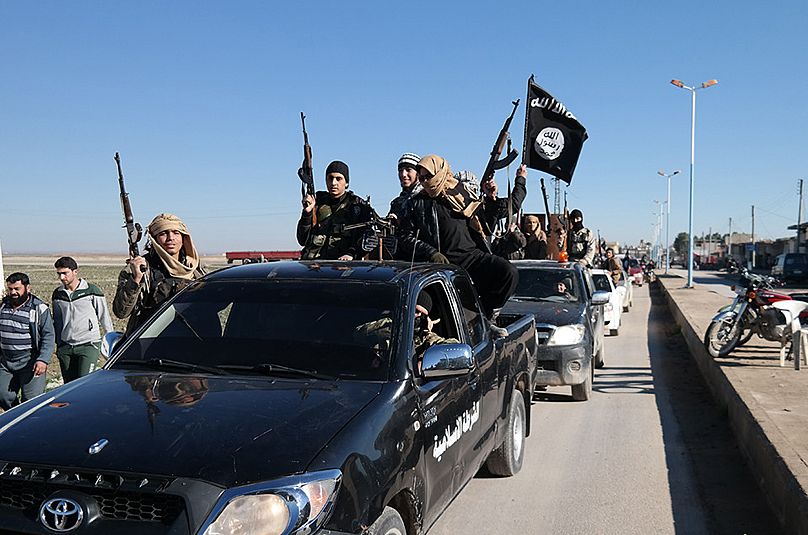Amid a recent spike in violence by the so-called Islamic State (IS) group and its offshoots, experts warn that it could be making a comeback globally.
Turkey has arrested at least 161 suspected members of the so-called Islamic State (IS) this month, amid concerns that the jihadist group and its affiliates are staging a comeback and posing a growing threat across the Middle East, Europe and Africa.
Turkish Interior Minister Ali Yerlikaya said last week that the suspects — who were detained across nearly half of the country's 81 provinces — were active within IS and providing financial support.
This followed a warning from UN counterterrorism experts last month, who said there had been a resurgence in activity by Islamic State ofshoots in the Sahel — in Burkina Faso, Mali and Niger — as well as by IS in Syria and Iraq.
The jihadist group's decentralised cells have killed more than 200 people in the past three months, mainly in sub-Saharan Africa, according to calculations by Euronews based on news reports.
More than a decade ago, IS — which began as a breakaway group from al-Qaida — seized control of large swathes of Syria and Iraq.
The group's approach to radicalisation was far more modern and slick than the less tech-savvy al-Qaida. It invited often poor and jobless young Muslims to "fight for the sake of God", or their brand of Islam.
With its militant interpretation of Salafism — the most conservative brand of Islam — IS claimed the territories it held were to be the promised land of Muslims, where an extreme version of the Islamic Sharia law reigned supreme.
At its peak from 2014 to 2017, IS controlled roughly a third of Syria and Iraq. It launched deadly attacks in the West, including in Paris in 2015 and Brussels in 2016, as well as public beheadings of captured journalists and aid workers.
The group was declared defeated in Iraq in 2017 following a three-year battle, and the death by suicide of its leader Abu Bakr al-Baghdadi during a US military-led raid in October 2019 seemingly represented the final nail in the coffin for the group.
Despite its loss of territory and power, IS sleeper cells remained present in Syria and Iraq, while offshoot armed groups have continued to carry out lethal attacks worldwide.
"Regardless of whether they operate under the name IS or another, radical Islamist terrorist groups persist in carrying out violent attacks", said David Campbell, a professor of comparative political science at the University of Vienna.
"Ultimately, IS continues to represent a serious terrorist threat," he told Euronews.
Gen-Z learns of IS
Last week in Turkey, a 16-year-old gunman in the western city of Izmir was arrested over the fatal shooting of two police officers, according to the interior ministry.
Two other officers were injured in the attack on the police station.
Authorities have not provided a motive, but Turkish media reported that the suspect — identified by officials only as EB — had watched IS material online before the shooting.
Recruiters in extremist groups such as IS often target people whose daily lives are marked by poverty and misery, and entice them with the prospect of a better afterlife.
For example, one of IS's most famous "nasheeds" — a type of religious vocals-led music popular in Arab countries — explicitly says: "For the sake of God, we will march to the gates of paradise where our maidens await."
It also points to a shift in approach.
Instead of a cost-heavy and complex organisational structure and in-person recruitment, which would be an easy target for law enforcement, the jihadist group can now rely on the reach of social media and online content providers to spread its propaganda, particularly targeting Gen-Z recruits.
Spike in attacks points to resurgence
Taking advantage of the power vacuum caused by the decreased Western military presence and the recent overthrow of the Bashar al-Assad regime in Syria, the IS group has continued to employ its guerrilla tactics in a decentralised manner.
It came into the spotlight once again in late June as a joint Syrian-Turkish operation reportedly foiled an assassination plot by an IS-linked cell against Syria's interim President Ahmed al-Sharaa in Daraa.
In July in Nigeria, the IS-affiliated Lakurawa group militants raided Kwallajiya village in Sokoto state, killing several civilians during prayers and displacing families, local media reported.
The following month, militants affiliated with IS West Africa Province (ISWAP) reportedly struck Borno and Adamawa states, killing eight civilians near the Cameroon border, while separate attacks in Gwoza and Askira/Uba resulted in the deaths of eight more farmers.
August also saw a surge in IS activity in Mozambique, where the so-called IS Mozambique Province (ISMP) conducted several raids against villages in Cabo Delgado and killed more than 60 civilians in different parts of the country, according to reports.
In early September, in the Democratic Republic of Congo's North Kivu province, IS Central Africa Province (ISCAP)-linked rebels killed at least 60 mourners at a funeral in Ntoyo village, according to local officials and political monitors.
Despite the recent surge in attacks, IS remains largely weakened as an organisation, and its capabilities to organise coordinated attacks are severely limited compared to its peak.
The group's top brass continues to convey messages over secret Telegram groups.
A US-led coalition last month apprehended a senior member of IS in northwest Syria, according to the Britain-based Syrian Observatory for Human Rights (SOHR) and the SANA state news agency.
It is unknown whether the captured member is IS leader Abu Hafs al-Hashimi al-Qurashi — who has been at the helm since Baghdadi’s death.
However, judging by the modus operandi of recent attacks, the affiliate groups are seemingly operating autonomously and are mostly exploiting existing security weaknesses and underlying conflicts in places like the Sahel.
Elsewhere, IS remains a network of loosely connected sympathisers operating independently from orders, with the genuine danger stemming from its sales pitch: a promise of escape from misery and poverty.
Emre Başaran contributed reporting.


















